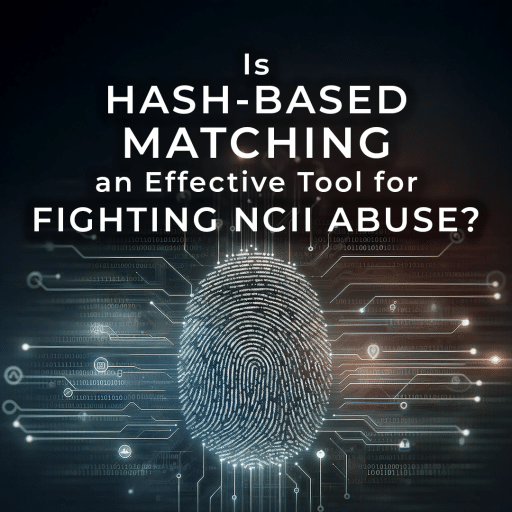Catfishing has become the go-to tactic for cybercriminals, luring victims into their web of deception with alarming frequency.
Almost every application that allows you to interact with others online lets you change some aspect of who you are whether through beauty filters, apps to face swaps, and even services to manipulate our voices and this technology has created a whole new world where it is harder to detect which profiles are real vs. fake.
Why do scammers use catfish accounts? They do so to craft attractive profiles and compelling backstories that help them connect with and lure potential victims. By hiding their true identities, these scammers meticulously design every detail of their fake persona, impersonating a victim’s ideal partner.
Many people may not fully understand the extent of these deceptive tactics and could already be interacting with one or even multiple catfish profiles.
But what is the real danger? That is something we explore further in this article.
Why Is It Called Catfishing?
Before it was known as “catfishing,” the act of creating a fake persona to deceive targeted individuals was commonly referred to as fraud or impersonation with the perpetrators referred to as con artists. However, in 2010, a documentary film titled ‘Catfish’ (1) premiered, and the term quickly gained traction.
Building on the film’s popularity, MTV launched a series in 2012(2) that exposed online fraudsters on a weekly basis. During its nine-season run, the show reportedly received and reviewed around 100 applications per day from people seeking help to verify the identities of individuals they were interacting with online.
But why the term “catfish”? The name originates from a quote in the 2010 film, where Nev Schulman explains that catfish were historically used to keep cod active during transport on commercial fishing vessels. While the connection between this practice and his wife’s impersonation of a younger woman seems non-sensical, the term carries intriguing metaphorical parallels.
A stronger link might come from the practice of hand-fishing, or “noodling,” where fishermen attract catfish by making them believe their fingers are large, enticing worms. One the catfish swallows the fisherman’s hand they create a fist to make it harder for the fish to escape capture.
Regardless of the logic behind the naming, “catfishing” has become firmly embedded in public consciousness as the term for cases of online deception and fraud.
Is Catfishing Illegal?
Yes, authorities consider catfishing illegal depending on the circumstances and motivations. In most countries, just the use of someone else’s information could be considered a form of fraud. But the cases in which these perpetrators are mostly commonly prosecuted is some form of extortion.
Catfishing is often the starting technique behind all online extortion. Of these crimes, sextortion, blackmail, and extortion via romance scams are the most popular.

Most Popular Catfishing Apps
The extent to which con artists go to exploit their victims is unimaginable. These lies can unfold over years; some victims will, for decades, keep online relationships with the scammers, never realizing they are being duped. A person who befriends a victim on the Internet is also not unusual, except that what begins as harmless becomes an emotional snare.
But why go to such ends? For money. This is why the following applications have become synonymous with the practice of catfishing for extortion scams.
#1 Dating Apps
Catfishing scammers thrive on vulnerabilities and intimate spaces. With 40%(3) of the catfishing reported cases, users confess that they’ve seen these fake profiles on Tinder, Bumble, or OkCupid. Dating apps are the most common ground for catfishing. They feature a high number of fake profiles, making it easy for a scammer to disguise themselves among other attractive singles.
#2 Social Media
Facebook, Instagram, and Snapchat are the most used platforms for catfishing. These social media apps, despite their security efforts of the platforms, are where a majority of cybercriminals catfish potential victims. About 83%(4) of reported catfishing incidents happen on Facebook or Instagram, making the Meta apps the most common platforms for fraud.
#3 OnlyFans
In recent years, there have been two main ways in which scammers have been able to use the OnlyFans platform for extortion practices.
- Stolen Content: Scammers steal and share an OnlyFans Model’s content and impersonate them through fake accounts, group chats, and forums.
- Coercion: Another way is to first threaten or extort the OnlyFans model. This means creating videos, photos, and collaborating with a scammer on it. In these cases sextortion, blackmail, or malicious links are sent by the actor.
How Many People Are Catfished Each Year?
Falling for these fake profiles is more common than you think; the FTC reported around $1.45 billion(5) in losses that were attributed to romance scam cases or sextortion cases. As technology and AI tools grow, they make it easier to impersonate others and use fake identities online.
The situation is expected to worsen over the course of the next years. In countries like the UK and Australia, online catfishing is common. In the UK, almost 22%(6) of the online dating app users have been catfished into relationships or online interactions. Scams may be common in North America due to different money transfer apps.
Why is Catfishing So Effective?
Catfishing works because it plays with people’s desires of connection, love, and relationships. It uses manipulation and psychological tricks to ensure compliance. A catfish builds trust over time; their way of working is patient and slow, building romance and friendships, either through romance or promiscuity.
Their profiles are crafted for their target, making it impossible to overlook the similarities of their tastes or their striking resemblance to someone their victim had dated. Over the course of weeks or months, the victim becomes so emotionally involved and attached to this one person that they overlook all the red flags that might tip them off to what is really happening.
The Connection Between Catfishing and Sextortion
While catfish accounts are often used for romance scams, they play an even larger role in sextortion schemes. As part of a blackmail strategy, scammers rely on enticing content to manipulate their victims.
Using the visual appeal of their fake profiles, these scammers craft messages designed to encourage sexting. In many cases, they send fake nude images first, enticing the victim to reciprocate by sharing explicit content that reveals their identity.
Once the victim shares sexual content, the scammer’s tone shifts from playful and flirty to forceful and threatening. They insult and berate the victim, creating scenarios where the victim feels that if the explicit content is exposed, their reputation and life will be ruined.
If You Suspect You’ve Been Catfished, Take These Steps:
If you feel like you have been targeted by a catfish, act quickly.
These are some immediate steps you can take:
- Reverse Image Search: Use Google to see if the profile pictures are linked to other online profiles. A reverse image search will let you know if the scammer has stolen another profiles photos or used stock imagery to craft their persona.
- Avoid Sending Money or Personal Information: Never send money or personal information to someone you haven’t met in person. Even if you are being threatened with exposure, delaying payment can be an effective tactic to stall while you get help.
- Don’t Block Them Immediately. If you haven’t engaged with the scammer in a way that gives them leverage for blackmail, you can block them. If you’ve sexted or sent money to their account, there are benefits to keeping the connection with your scammer’s profile. As you work with different cyber security experts, you will discover that it is important to utilize these connections to fight back.
Are There Resources for Victims of Catfishing Scams?
Being the victim of a catfishing scam can be emotionally and financially devastating. However, there are resources available to help you work with these organizations if you have been a victim.
- Report to Authorities: Whether you sent money to a catfish account or a fake profile is threatening to expose your nudes on social media, seek the help of law enforcement.
- Report The Scammer to System Administrators: Every social media and dating app has resources and teams for users to report catfish profiles and blackmailers. While reporting to the platform can’t prevent damage to your reputation by a blackmailer posting your content, it helps to prevent others from falling victim.
- Work With Our Cybersecurity Team: At Digital Forensics Corp, we assist victims of catfishing scams by identifying the location, identity, and technology used by blackmailers. Using advanced technologies and digital forensics tools, such as IP-to-location tracking and device fingerprinting, we can help track down your perpetrator. We offer specialized services for those who have been catfished and want to protect themselves from blackmail or extortion. For more information or to speak with one of our engineers, contact our Blackmail Helpline.
SOURCES
- Catfish 2010 Documentary: https://en.wikipedia.org/wiki/Catfish_(film)
- Catfish 2012 Television Shows: https://en.wikipedia.org/wiki/Catfish:_The_TV_Show
- Statistics For Catfishing on Social Platforms: https://nikolaroza.com/social-media-catfishing-statistics-facts-trends-guide/
- Dating Application Catfishing Statistic: https://techreport.com/statistics/cybersecurity/internet-catfishing-statistics/
- 2023 Statistics on loss due to Sextortion & Extortion: https://www.ftc.gov/business-guidance/blog/2024/02/love-stinks-when-scammer-involved
- UK prediction of rising losses to sextortion: https://www.statista.com/statistics/1467264/uk-adults-catfishing-awareness-experiences/
DISCLAIMER: THIS POST IS FOR INFORMATIONAL PURPOSES ONLY AND IS NOT TO BE CONSIDERED LEGAL ADVICE ON ANY SUBJECT MATTER. DIGITAL FORENSICS CORP. IS NOT A LAWFIRM AND DOES NOT PROVIDE LEGAL ADVICE OR SERVICES. By viewing posts, the reader understands there is no attorney-client relationship, the post should not be used as a substitute for legal advice from a licensed professional attorney, and readers are urged to consult their own legal counsel on any specific legal questions concerning a specific situation.
The information presented in this article is based on sources that are not readily available to the public and may be subject to restrictions or confidentiality. It is intended for informational purposes only.






